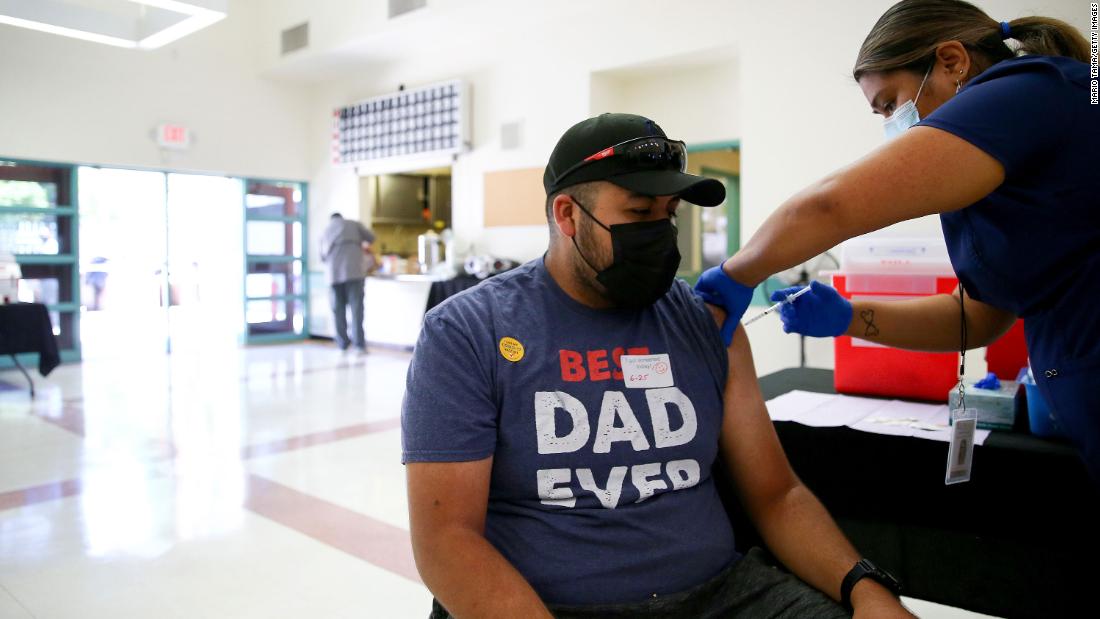
Consult almost any health care professional about this third decision, and the answer you will likely receive is overwhelmingly: yes, get vaccinated, and now. (And trust me, this is sound advice.)
But many are still hesitant to receive a vaccine that lacks the familiar "US Food and Drug Administration approved" label. So, what exactly does it mean that the vaccines have emergency use authorization (EUA)?
How does that differ from traditional FDA approval? Should we have confidence that each of these labels have been given with the safety of the public in mind? And with these vaccines deemed safe and effective, can -- or will -- federal and state governments, or any institution, mandate that the public get vaccinated?
We are already starting to learn the answer to the last question with news earlier this week that the Department of Veterans Affairs will require physicians to be vaccinated, and an anticipated announcement from the Biden administration on Thursday that all federal employees and contractors must receive vaccinations or regularly submit to testing and mitigation measures.
While there has been pushback from some over the idea of mandatory vaccinations, the data show that widespread administration of these vaccines -- even while they are only authorized for emergency use -- is in the best interest of the public. The reality is that, while there is a higher bar to clear for full FDA approval, there are many overlapping requirements that assure the safety and necessity of the vaccines.
Both require a certain number of people to be treated with the vaccine or a placebo in a clinical trial, (in this case 3,000 people in each group).
They also require evidence that the vaccine reduces the frequency and severity of infection, and proof that it is manufactured with consistent purity and potency. Each undergoes laboratory, early clinical and large-scale clinical testing, as well as examination of the manufacturing process.
The major differences between these two processes is the length of time after vaccination for which the study participants are observed and the standard that is set for evaluating the clinical data. For an EUA, observation of study participants must continue for an average of two months following complete vaccination, while for FDA approval all subjects must be observed for a minimum of six months.
The evidentiary bar for granting an EUA requires that the FDA "determine that the known and potential benefits outweigh the known and potential risks of the vaccine." For approval, the FDA requires "substantial evidence," essentially meaning that the clinical trials are sufficiently large to determine whether potential benefits and potential risks are real, thus providing the public greater confidence.
The bottom line is that these vaccines were thoroughly evaluated prior to receiving EUA, and the further assessment being done prior to FDA approval is just icing on the cake. What's more, Pfizer, Moderna and Johnson & Johnson each performed clinical trials that were five to seven times larger than the required 3,000 subject sample size -- and each was designed to continue follow-up for a minimum of six months.
We will likely, however, soon no longer have to grapple with the distinction between EUA and FDA approval, at least for a couple of the vaccines. In late spring, Pfizer and Moderna initiated the process of applying for FDA approval. While this process typically requires six months for a priority review, a decision could be announced sooner given the FDA's prior review of the EUAs.
Ideally, the FDA already completed many of the activities that would be required to reach an approval decision in advance of the vaccine manufacturers' submissions, such as completing audits of the manufacturing facilities and clinical sites, preparing for the statistical analyses, and drafting the regulatory documents such as product labels. Doing so could reduce the review time from months to weeks.
As a former FDA employee, I have the highest faith in the review process by its scientists, engineers, physicians and safety officers. But recent events have raised questions about the political influence over its actions, including the commissioner participating in a political event, the agency granting an EUA under political pressure for hydroxychloroquine to treat certain Covid-19 patients -- followed by its revoking the EUA within three months -- and a recent decision to approve a drug for Alzheimer's despite several irregularities in its testing and review.
This is compounded by an administration that does not prioritize the FDA sufficiently to have yet nominated a commissioner, in contrast to the last two presidents, each of whom had a commissioner in place by March of their first term.
To restore confidence in the FDA as it approaches its decision on whether to approve Covid-19 vaccines, the administration must nominate a commissioner who has a track record of acting independently of politics. And using established authority, the commissioner must launch a transparent investigation into the irregularities in its processes.
In the meantime, whether through an institutional requirement, or by one's own choosing, everyone who is eligible must get vaccinated. Doing so reduces the possibility of a new viral variant emerging that is more dangerous or resistant to the current vaccines and offers us a fighting chance to defeat this pandemic.
"wait" - Google News
July 29, 2021 at 03:59AM
https://ift.tt/3j0vFzQ
Don't wait for full FDA approval to get your Covid shot. Here's why - CNN
"wait" - Google News
https://ift.tt/35qAU4J
https://ift.tt/2Ssyayj
Bagikan Berita Ini














0 Response to "Don't wait for full FDA approval to get your Covid shot. Here's why - CNN"
Post a Comment